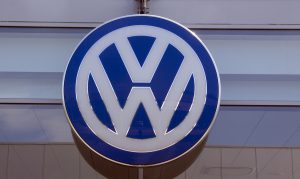Volkswagen Is Facing Early Losses As The Diesel Scandal Builds
 Michael Babboni
Recalls
Volkswagen has recently presented its third quarter financial report, and for the first time in 15 years they’ve posted a loss, falling $3.84 billion in the red. That’s a remarkable streak to break, and it’s entirely due to the diesel scandal that broke less than two weeks before the quarter’s end.
Michael Babboni
Recalls
Volkswagen has recently presented its third quarter financial report, and for the first time in 15 years they’ve posted a loss, falling $3.84 billion in the red. That’s a remarkable streak to break, and it’s entirely due to the diesel scandal that broke less than two weeks before the quarter’s end.A Mixed Bag
VW only went public about their deceptive software on September 18th, but the company has set aside around 6.7 billion in euros to cover some of the expected costs of recalls, fines, and lawsuits, which is why their quarterly profits dipped into the negatives so quickly. At the same time, the company’s stock value has dropped by a quarter and it’s lost its position as the world’s top automaker to Toyota. Admittedly, they’d only held that position for around three months, but going public about cheating on emissions tests is not an auspicious way to lose the title.
Still, Volkswagen didn’t exactly fluke its way into the top spot, nor did it get there on the back of diesel engines alone. Without the money earmarked to pay for the scandal, VW would have posted a healthy profit, and as it stands the quarterly loss wasn’t as big as some analysts feared.
In addition, Volkswagen is turning a lot of its investments into liquid cash in order to safely absorb the scandal’s costs. It’s already sold off a 20 percent stake in Japanese automaker Suzuki, and it’s looking to add another 3.7 billion euros thanks to a transaction involving its holdings in the financial company LeasePlan.
A Scandal With A Headwind
Although it currently looks as though Volkswagen may be able to weather the financial storm and come out intact, we are still discovering more about the full scale of the scandal’s impact.
Air pollution doesn’t just affect the environment, it affects everything that lives within it. That includes us humans, and the first peer-reviewed study on the human cost of Volkswagen’s defeat devices has recently appeared in Environmental Research Letters. According to the study, the additional pollution generated by nearly 500,000 VW diesel engines is responsible for the deaths of 60 Americans thanks to bronchitis and other respiratory diseases. The study also predicts that the death toll will eventually rise to 140 over the vehicles’ lifetimes if they aren’t fixed.
While it’s unlikely that any of these victims’ families will be able to hold the German automaker directly liable for contributing to air pollution, it does give the American government grounds to fine them for around $450 million thanks to medical expenses alone.
Notably, this study only looks at the cost of pollution in the United States. In Europe, diesel personal cars count in the millions rather than the hundreds of thousands, and European nations are for the most part much smaller and more densely populated than the US. It’s almost guaranteed, then, that any European study will add significantly to the death count.
Of course, while pollution victims may not be able to sue Volkswagen directly for damages, the company doesn’t have that luxury when it comes to its own customers. It has, after all, sold them a defective product, and even worse it’s a defect they knew of and actively lied about for years. While plaintiffs may not be able to point to specific traffic accidents caused by over-polluting diesel engines, they still have a very strong case for financial injury since they would have bought another car if VW had been honest about its products.
Volkswagen’s current outlook is still fairly optimistic, but then we’re only just starting to see the shape of the financial hurricane which is about to strike the company. While the world’s second biggest automaker can likely survive a few direct blows, we still don’t know yet just how heavy those blows will be.
